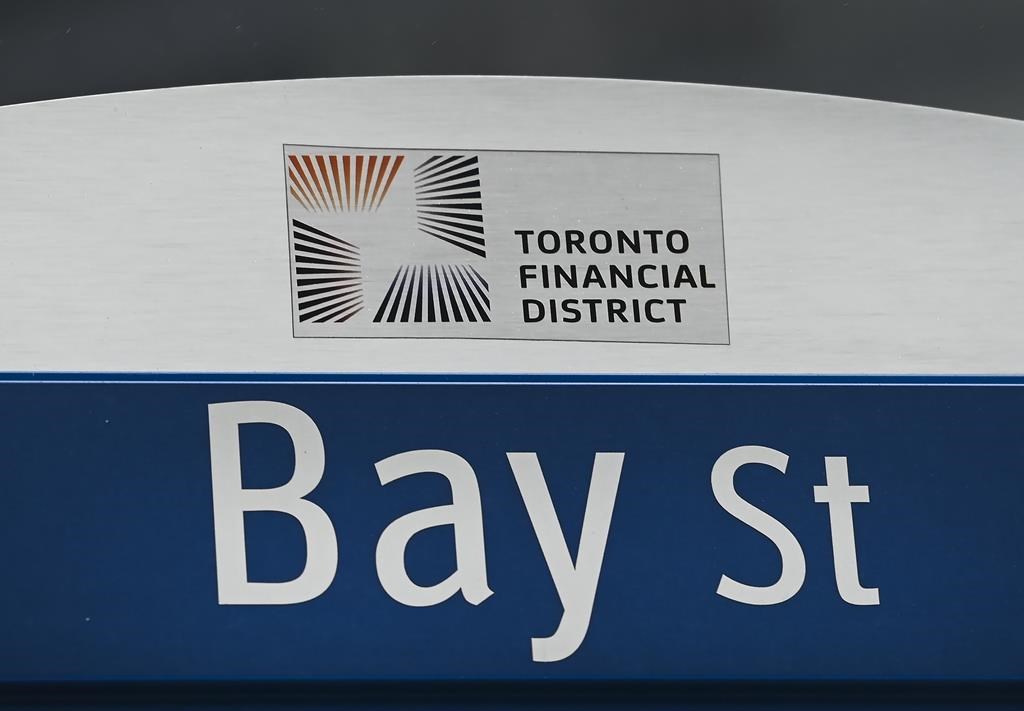Canada’s main stock index fell almost 250 points Friday, led by losses in energy and telecom stocks, while U.S. markets drifted to a mixed close.

“It’s been a big week for U.S. markets, said Mona Mahajan, senior investment strategist with Edward Jones, as Wall Street drifted to its seventh straight winning week, the longest streak in six years.
The S&P/TSX composite index closed down 249.65 points at 20,529.15.
In New York, the Dow Jones industrial average was up 56.81 points at 37,305.16. The S&P 500 index was down 0.36 points at 4,719.19, while the Nasdaq composite was up 52.36 points at 14,813.92.
The U.S. Federal Reserve’s interest rate decision and the accompanying economic forecasts gave a boost to markets earlier in the week, said Mahajan.
The Fed held its overnight rate steady Wednesday and said it expects to cut three times in the next year as economic conditions continue to moderate.
The central bank appears to be planning for a soft landing, she said.

Get breaking National news
Markets have gotten ahead of themselves, pricing in around six cuts in 2024, said Mahajan, while her firm sees three or four cuts as a credible base case scenario.
The rally that’s lifted markets during the past weeks is very different from the one that marked the first half of 2023, Mahajan said. That one was narrow, driven by a handful of large technology names over optimism about artificial intelligence. Now, the laggards are playing catch-up, she said.
“We do think that this rally feels like it’s broader.”
If the Fed’s economic projections pan out, that trend could continue into the new year, said Mahajan, “albeit not in a straight line higher.”
Meanwhile, the TSX was softer Friday than its U.S. counterparts. However, after a strong week, the index was likely just pulling back somewhat, said Mahajan.
The economy has cooled faster in Canada under the weight of interest rate hikes than in the U.S., making the Bank of Canada potentially a candidate to cut rates earlier than the Fed, she said.
Bank of Canada Governor Tiff Macklem said it’s still too early to consider cuts, in his final speech of the year.
“Once governing council is assured that we are clearly on a path back to price stability, we will be considering whether and when we can lower our policy interest rate,” he said.
The Canadian dollar traded for 74.75 cents US compared with 74.52 cents US on Thursday.
The February crude oil contract was down 13 cents at US$71.78 per barrel and the January natural gas contract was up 10 cents at US$2.49 per mmBTU.
The February gold contract was up US$9.20 at US$2,035.70 an ounce and the March copper contract was down less than a penny at US$3.89 a pound.
— With files from The Associated Press







Comments
Want to discuss? Please read our Commenting Policy first.